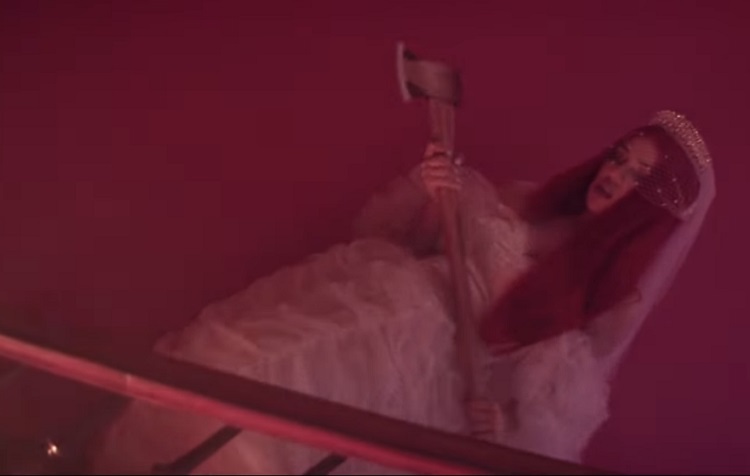Sweet but Problematic | Is Ava Max stigmatising mental illness?
If you’re a regular listener to Top 40 radio, or similar on Spotify, chances are you’ve been subjected to the song ‘Sweet but Psycho’ by Ava Max.
This is Max’s debut single, and unfortunately for her, it’s anything but pleasant. It feeds into a misogynistic “crazy girlfriend” narrative, while also stigmatising those who suffer from psychosis, psychopathy or other mental illnesses.
As someone who suffers with mental health themselves, and an advocate for de-stigmatisation, I wanted to take a further look into the problems deep rooted in the song and pop culture itself.
I spoke to Courtney Smyth, who has years of experience with mental health systems in Ireland. As well as this, Courtney is a mental health advocate with a BSc in Psychology. She has been involved with youth mental health charity Reach Out and writes regularly for HeadStuff on social issues surrounding mental illness and stigma.
“Songs like ‘Sweet But Psycho’ just pull back on the advances artists are making,” Smyth explains. “We’ve been taking massive steps forward recently. Look at Ariana Grande and ‘Thank u, next’. Look at all the feminist artists out there standing up for themselves.
“I’m not blaming Ava Max specifically, but all the people involved in making that song, the writers who collaborated and wrote the lyrics and composed the music all had a duty to think about whether portraying a woman as dangerous, fun and likely to cut your clothes up (hello, misogynistic stereotypes) has a place in the music scene in 2018. I don’t think it does.”
But it’s not the first time mental health has been undermined or misrepresented in pop culture, Courtney says:
“The representation of mental health issues in shows such as Pretty Little Liars tend to be incredibly problematic, and there is still a culture where in shows people who display behaviour that is socially unacceptable are labelled mentally ill.
“A recent study showed that there was an increase in suicidal behaviour from teenagers after the release of 13 Reasons Why, which was irresponsibly filmed and went against the World Health Organisation’s media guidelines on reporting suicides, and they ignored the advice of a youth mental health charity. It was irresponsible and glorified suicide in a way that was worrying and led to copycat suicides.

“There’s been a severe uptake in recent years of individuals being willing to talk about mental health issues, but if we stop short at only allowing depression and anxiety to be normalised, we are letting a huge percentage of the population down.”
What elements of this particular song are causing the problem? Take a look at some of the lyrics:
Grab a cop gun kinda crazy
She’s poison but tasty
Yeah, people say ‘Run, don’t walk away’
‘Cause she’s sweet but a psycho
A little bit psycho
At night she screamin’ ‘I’m out, out my, out my mind.’
But what exactly is psychosis? And why is it so important not to use these phrases so flippantly?
“Psychosis in itself is not an illness or a disorder, but rather a symptom, and it is characterised by factors where the person experiencing psychosis has an impaired relationship with reality,” Courtney observes. “These include delusions — false beliefs — auditory, visual or sensory hallucinations, confused or disturbed thoughts, disorganised speech, and a lack of insight or self-awareness during the episode of psychosis.
“According to the HSE, schizophrenia is one of the most common serious mental health disorders, and in 2012 an article published suggested that 120,000 people in Ireland are living with psychotic disorders or schizophrenia. This means that it is highly likely someone you know either experiences psychosis, or has a loved one who does.
“‘Psycho’ is a flippant term that erases the experiences of people who actually do live with psychosis and further stigmatises the condition. It is colloquially used as a synonym for ‘crazy’ and is used to label any behaviour that is considered socially or personally unacceptable. All this does is create a culture of shame around serious mental health conditions.”

Last year, UK activist Phil Hill successfully petitioned a number of retailers, including Boohoo to remove items of clothing with slogans such as ‘Cute by Pscyho’ from their stores.
“Why did people think it was OK exploit mental health to make money? Why was a mental health disorder being passed as fashion?” Hill asks.
“How could there still be such a lack of understanding of mental health that someone would design this and others would by it? And ultimately, why was mental health STILL not getting the respect it deserves?”
The song has taken psychopathy and tried to make it edgy. The music video depicts a woman, poisoning a man, and following him with an axe while wearing a wedding dress.
Oh, she’s sweet but a psycho
A little bit psycho.
She’ll make you curse, but she a blessing
She’ll rip your shirt within a second
You’ll be coming back, back for seconds
With your plate, you just can’t help it.
“There were any number of words that could’ve been used instead of psycho and I think there’s enough collective knowledge being stockpiled to know that psycho isn’t acceptable,” Courtney continues.
“Notwithstanding that, I think we’ve moved far past the idea that women are crazy, and continuing to perpetuate it as a quirk or fun feature that will have men running after these women brings us back to the suggestion that women only act and do things for male pleasure and the male gaze, and that they like ‘crazy’ when there is a prospect of sexual gratification, but when that is off the table, ‘crazy’ is negative. We don’t need it.
“As recent as this year, See Change called for people to stop using words like ‘psycho’ and ‘schizo’. This includes songs. Using it in a song normalises it, it puts it into people’s vernacular, it encourages the use of the words, it does harm.”
In response, I decided to stand up to this song, and began a petition to radio stations and music television stations in Ireland to remove the song from their playlists.
When I posted the petition to Twitter, fans of the singer were quick to reply explaining to me that “Melanie Martinez has done worse.” Whilst I’m unfamiliar with this song or artist, it goes without saying, two wrongs don’t make a right.
“Absolutely awful song that rolls the mental health narrative back about 20 years,” one of the petition’s signators wrote. “Being ‘psycho’ isn’t a cute personality trait, it’s a mental disorder and people with psychopathic tendencies need help, not to have their difficulties trivialised in a catchy pop song.”
I got in touch with a few not for profit Mental Health agencies to raise the issue. Whilst some have yet to respond, those who have have shown great support.
“Challenging stigmatising language is so important and can strongly impact change,” writes Sinead Keating from Headline.
Mental Health Ireland also sent their support, saying: “You are raising a very valid and reasonable point with your petition and we all here at MHI wish you well with it.”
Every year on World Mental Health day, tropes of people post “It’s okay not to be okay” and other similar mental health mantras to their social media feeds. We need to work together so that those who have psychosis or psychopathy can be open about their health, as well as being taken seriously and treated with the respect they deserve.
You can help support the campaign by signing the petition here.
